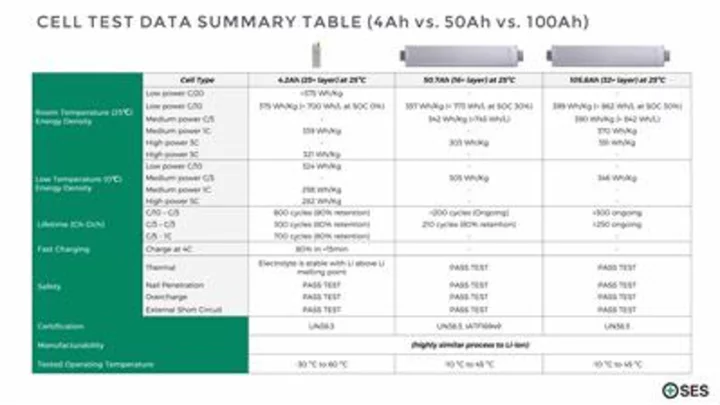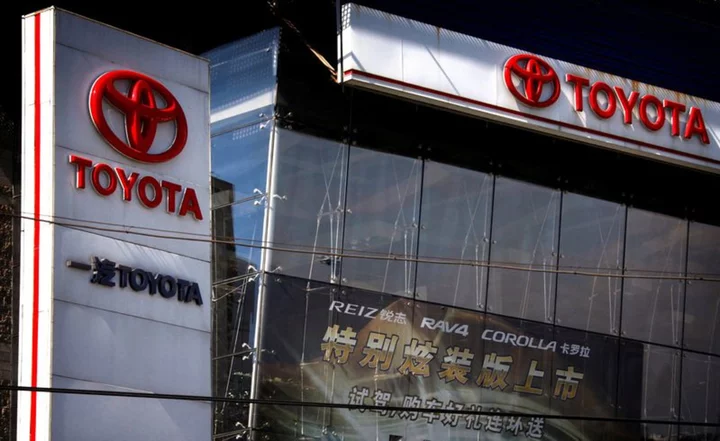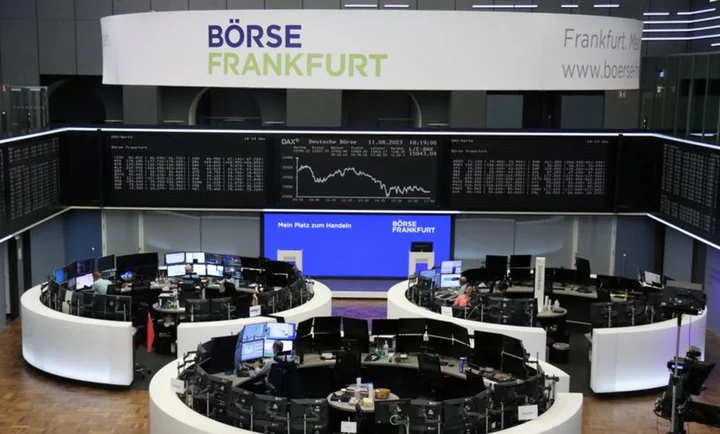LONDON (AP) — The European Union is targeting Apple, Amazon, Microsoft, Google parent Alphabet, Facebook owner Meta and TikTok parent ByteDance under new digital rules aimed at reining in the market power of online companies.
The six companies were classified Wednesday as online "gatekeepers" that must face the highest level of scrutiny under the 27-nation bloc's Digital Markets Act.
The act amounts to a list of do's and don'ts that seeks to prevent tech giants from cornering digital markets, with the threat of whopping fines or even forcing Big Tech companies to sell of parts of their business to operate in Europe.
It’s part of a sweeping update to the EU’s digital rulebook that’s starting to take force this year, and comes weeks after a companion package of rules aimed at keeping internet users safe, the Digital Services Act, started kicking in.
"The most impactful online companies will now have to play by our EU rules," European Commissioner Thierry Breton, who's in charge of the bloc's digital policy, said on X, previously known as Twitter. “DMA means more choice for consumers. Fewer obstacles for smaller competitors. Opening the gates to the Internet.”
The EU’s executive Commission said digital platforms can be listed as gatekeepers if they act as key gateways between businesses and consumers by providing “core platform services.”
Those services include Google's Chrome browser, Microsoft's Windows operating systems, chat apps like Meta's WhatsApp, social networks like TikTok, and others playing a middleman role like Amazon's Marketplace and Apple's App Store.
The companies now have six months to start complying with the Digital Markets Act's requirements, which are spurring changes in how Big Tech companies operate.
Google said the new law will require it and other companies “to make various changes to the way their products and services work.”
One of the main goals is to break up the “closed environment where you are in a way locked in and you cannot go elsewhere, ” said Alexandre de Streel, a professor of European law at the University of Namur and an academic director at CERRE, a think tank in Brussels.
"Consumers will be better off because you will pay less and will be able to move more easily from one one platform to another,” de Streel said. “So that’s the endgame.”
For example, under the DMA tech companies can't stop consumers from connecting with businesses outside their platforms.
That could put pressure on Apple to open its App Store further. Video game maker Epic Games and music streaming service Spotify have both complained that Apple wouldn't let them bypass its Apple Pay payments system to avoid paying its 30% commission for subscriptions. Apple has since eased some of its longstanding restrictions.
Messaging services will be required to work with each other. That means Telegram or Signal users could exchange texts or video files with WhatsApp users.
Platforms are banned from ranking their own products or services higher than their rivals in search results. So, Amazon isn't allowed to make its own-brand products easier to find than those from third-party merchants. The ecommerce giant already started giving European buyers more visible choices when it settled an EU antitrust probe last year, by offering them a second "buy box" with a different price or delivery offer for the same product.
Online services can’t combine a user’s personal data to build up a profile for targeted advertising. That means Meta can't mix together a user's data from Facebook, Instagram and WhatsApp services without clear consent.
Essential software or apps such as web browsers can’t be installed by default along with the operating system, in the way Google’s Chrome comes bundled with Android phones. Consumers will instead be given a choice screen for search engines and browsers to use on their devices. Google noted that it's already doing this and said it would remind European users of their choices.
Violations could result in fines of up to 10% of a company's annual global revenue, and up to 20% for repeat offenders, or even a breakup of the company.









